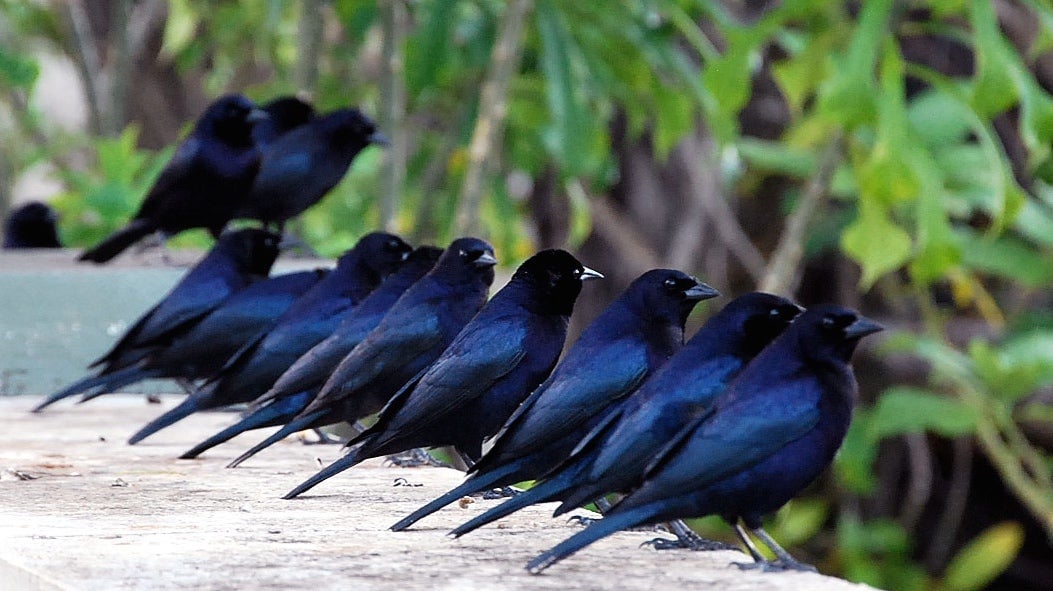Cowbirds have turned into devious criminals to avoid raising their own chicks
The thoughtful thug scopes out a crime scene in advance, or cases the joint as it’s known colloquially. Usually, it’s considered unwise to return to the scene afterward, at least for people. But for cowbirds, crime is a way of life and what they leave behind is extremely precious—their young.


The thoughtful thug scopes out a crime scene in advance, or cases the joint as it’s known colloquially. Usually, it’s considered unwise to return to the scene afterward, at least for people. But for cowbirds, crime is a way of life and what they leave behind is extremely precious—their young.
Cowbirds are brood parasites. These avians, like cuckoos, get other birds to raise their offspring by secretly dropping their eggs in their nests. New research tracking the activity of two types of cowbirds, published in Behavioral Ecology and Social Biology (paywall), shows that these parasitic parents are surprisingly careful about where they leave their precious cargo.
They scope out potential nests multiple times before the act and and carefully plan the timing. Some even return to the scenes, over and over again. In other words, these are some very determined parasitic birds.
Researchers led by Romina Scardamaglia, a behavioral ecologist at the University of Buenos Aires, used new radio-tracking technology to spy on two cowbird types found in Argentina called shiny and screaming cowbirds. They tagged the birds and followed their activity, learning that the creatures checked out other birds’ nests before leaving their eggs. Of the 41 birds tracked, all checked target nests a few days in advance of the act.
One type of cowbird turned out to be more determined than the other, however. Screaming cowbirds visited nests an average of 27 times each—almost twice as often as shiny cowbirds. The researchers believe that this extra level of dedication is cyclical. The more the screaming cowbirds visit a nest, the more they get caught. The more they get caught the more they need to plan and go back to try their criminal acts. One bird went back to the scene of the crime 39 times after laying her egg in a nest.
The shiny cowbirds, on the other hand, didn’t go back to check on their eggs, which scientists attribute to their different methods of infiltration. Basically, shiny cowbirds are serious bullies, poking a hole in every egg in a nest where they plant their own eggs. So, in order to avoid killing their young after leaving them to hatch in a strange nest, they simply don’t go back to the crime scene, thus improving the chances of their offspring surviving.
This mass murder method has threatened other bird species. For example, the saffron-cowled blackbird population in Argentina has declined partly due to shiny cowbird crime. But the toughest thugs come from the United States, with brown-headed cowbirds engaging in mafia-like behavior threatening to retaliate if their eggs are rejected. Behavioral ecologists theorize that victims who sit silent on the parasite’s eggs do so to improve the chances of survival for their young.
The latest cowbird research out of Argentina confirms ornithologist suspicions about the creature’s strategic criminality, according to Jeffrey Hoover, an avian ecologist at the University of Illinois not involved with the study. He told Science, “We kind of know it goes on but we never had a good data set to point to.”
Confirmation of the cowbird’s considered cruelty should come as a bittersweet relief to people, proving the crooked timber of humanity is pretty typical and that all creatures have to contend with crime.